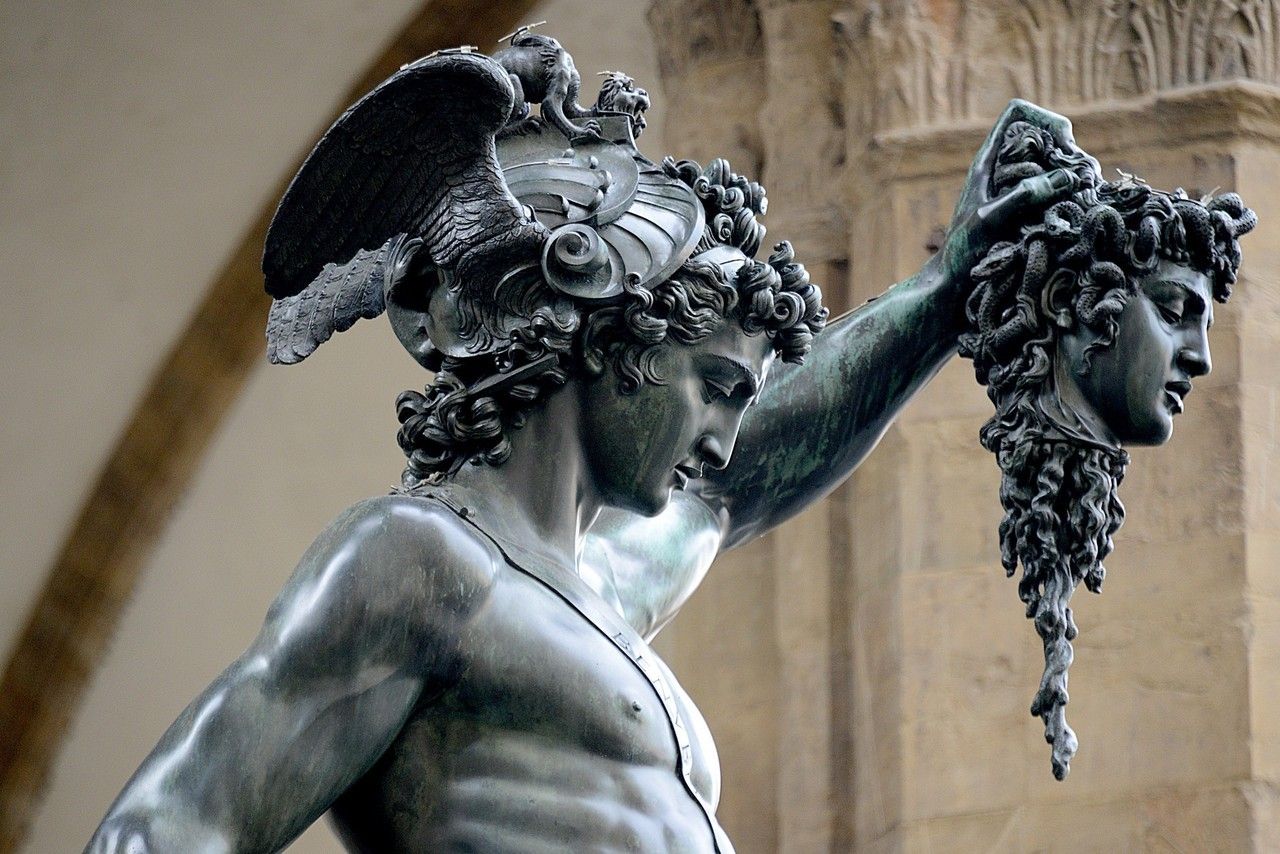Louis Pasteur?
His milk is so passé. Louis Microfilter has much better stuff these days
But you need a subscription for it :p
I’m more a fan of Jonas Salk, Maurice Hilleman, Edward Jenner, Alexander Fleming
Fritz Haber, the Veritasium video about him is fascinating (The Man who Killed Milioms and Saved Bilions). He developed the chemical process to efficiently synthesize ammonia, one of the key discoveries that allowed mass adoption of fertilizers and the incredibly rapid growth of the human population in the 20th century (you could say that thanks to him, bilions of people could live and be fed by modern agriculture).
Tragically, he also had a fundamental role in developing chemical weapons during WWI, although he belived their use would reduce the number of deaths as army would simply avoid gassed zones, so who knows if he really intended and believed in the milions of deaths he caused. Ironically, he also helped developing Zyklon B during the rise of nazism (while it was still used as a pesticide), but was quickly forced to flee from Germany because of jewish origin. Later, his last invention would be used to kill even more people.
Norman borlaug and Fritz Haber. The first was basically the father of modern agriculture helping feed over a billion people. The latter known as the man that saved billions and killed millions, helped develop the haber bosch process that produces ammonia used in fertillizers that are responsible for feeding half the world’s population. It was also used in explosives hence the “killed millions” part.
Louis Pasteur
The Mitochondrial Eve.
Yeah my answer was “our Most Recent Common Ancestor”
Whoever first domesticated fire. Whatever his name was, I forgot.
That was Ug. Really cool guy. His golf swing was immaculate, too.
Every hole, a hole in one.
And then his grandson invented the number two.
I’d bet fire was involved in his/her name. Either fire was named after the inventor or the inventor was named after fire.
John Fire
Linus Torvalds or Richard Stallman
I’ll have to argue that Santos Dumont and others inventors did Open Source in the XIX.
But compared to one of those. Who did the biggest impact?
I dont know them and maybe they made a much greater impact.
Dumont was a prolific Brazilian-French inventor. Among his most famous achievements are several lighter-than-air flights and flying machines (blimps), as well as a potential claim as the inventor of the first airplane.
deleted by creator
Yes. That Stallman is arguably one of the top few people why we have the internet as it is, at all today.
Most other people could be “replaced”. If it wasn’t X, it would be Y. But only Stallman pushed the copyleft license onto Linux. Only Stallman’s organization popularized it.
So yes, that sexist, neurodivergent, bigoted Stallman, is one of the most positively influential people of our time.
A person needn’t be good in order to do good things, just as a good person doesn’t necessarily impact the world positively simply by existing.
deleted by creator
You’re wrongly assuming that the opinion of one man on a subject he has no sway in is relevant to more than IRC discussions.
Mathematicians, Physicists, Scientists, and Astronomers: Good effort everyone. The foundation of a rational world.
Very Notable Mentions:
-
Chemist: Fritz Haber. 1/3 of world food production today can be attributed to his discovery. Also an enormous negative impact, see German Chemical Warfare.
-
Biologist: Gregor Mendel. Monk who discovered the basis for genetics.
-
Ecologist: Charles Darwin. Discovered the theory of evolution.
-
Philosopher: Socrates. Critical Thinking.
-
Computers: Charles Babbage, Ada Lovelace, and Alan Turing. See empowerment of computation and relegating ridiculously complex math and data collection to machines.
-
Computer Networking: J. C. R. Licklider, DARPA, and Tim Berners-Lee. See Internet and I/O on a global scale. Both positive and negative.
-
Finally, the largest net positive of all: Artists. Yes, artists. Popularity as the prime determinant by nature of their work. For inspiration, desire, meaning, peace, community, and emotion. The language of all, an instinctive form of communication.
My visual pick is Leonardo da Vinci as both a practical and artistic contributor. As for classical, it’s nearly impossible to pick, but I’d say Beethoven and then Bach.
Eh, kind of ‘rediscovered’ more.
Biologist: Gregor Mendel. Monk who discovered the basis for genetics.
Sometimes children take after their grandparents instead, Or great-grandparents, bringing back the features of the dead. This is since parents carry elemental seeds inside – Many and various, mingled many ways – their bodies hide Seeds that are handed, parent to child, all down the family tree. Venus draws features from these out of her shifting lottery – Bringing back an ancestor’s look or voice or hair.
Indeed These characteristics are just as much the result of certain seed As are our faces, limbs and bodies. Females can arise From the paternal seed, just as the male offspring, likewise, Can be created from the mother’s flesh.
For to comprise A child requires a doubled seed – from father and from mother. And if the child resembles one more closely than the other, That parent gave the greater share – which you can plainly see Whichever gender – male or female – that the child may be."
- Lucretius, De Rerum Natura 4.1217-1232 (50 BCE)
Ecologist: Charles Darwin. Discovered the theory of evolution.
In the beginning, there were many freaks. Earth undertook Experiments - bizarrely put together, weird of look Hermaphrodites, partaking of both sexes, but neither; some Bereft of feet, or orphaned of their hands, and others dumb, Being devoid of mouth; and others yet, with no eyes, blind. Some had their limbs stuck to the body, tightly in a bind, And couldn’t do anything, or move, and so could not evade Harm, or forage for bare necessities. And the Earth made Other kinds of monsters too, but in vain, since with each, Nature frowned upon their growth; they were not able to reach The flowering of adulthood, nor find food on which to feed, Nor be joined in the act of Venus.
For all creatures need Many different things, we realize, to multiply And to forge out the links of generations: a supply Of food, first, and a means for the engendering seed to flow Throughout the body and out of the lax limbs; and also so The female and the male can mate, a means they can employ In order to impart and to receive their mutual joy.
Then, many kinds of creatures must have vanished with no trace Because they could not reproduce or hammer out their race. For any beast you look upon that drinks life-giving air, Has either wits, or bravery, or fleetness of foot to spare, Ensuring its survival from its genesis to now.
- Lucretius, De Rerum Natura 5.837-859
Certainly the more modern versions of these ideas had the benefit of the scientific method to help flesh them out and gain traction as opposed to being rejected and forgotten by dogma.
But let’s not be like the ancient Greeks in claiming Pythagoras invented ideas that we now know predated him by millennia. We owe a great deal to the giants on whose shoulders we stand on, but let us not forget the giants who tread the ground well before them and simply didn’t get taken up on the offer of their shoulders.
Lucretius, De Rerum Natura
It appreciate the knowledge and poetry. Thank you.
let us not forget the giants who tread the ground well before them and simply didn’t get taken up on the offer of their shoulders.
Rather, let us not forget the people whose ideas reflected reality. Data and science are not speculation, “must haves”, or attributions of unknown mechanisms to the favor of deities.
Many people speculated on gravity, astronomy, and falling things long before someone put it into a mathematical formula. That is, quantitative and qualitative assertions outweigh ideological ones. I speculated with a sibling about black-holes being potential wormholes or portals several years before I read a news article saying Stephen Hawking speculated the same. Yet I provide no supporting evidence, written and dated or not, thus I am no giant.
Yet I provide no supporting evidence, written and dated or not, thus I am no giant.
Much of Einstein’s work we recognize as monumental were things that could not be proven in his time and were only validated decades later.
The Epicureans may not have had the scientific method available to them, but their focus on observation driven speculation was literally one of the factors that fed into its creation (see the Pulizer winning The Swerve).
Much of Einstein’s work […] only validated decades later.
You mean Einstein’s equations? The maths that were solid enough to develop advanced destructive mechanisms and form entirely new theories equations?
the Pulizer winning The Swerve
To be clear, the prize for… art, and not journalism.
I’m not arguing that philosophy had no role in shaping history positively. Shaped history, yes. Came up with bright ideas, yes. Proved the atoms were arrangements of the four elements, not so much. Hedonism being the point of life, also not so much. Gave evidence for their claims? Very little more than speculation.
They gave contributions, yes. My point is they are contributors, but not giants in science. Having not had the method available to join the scientific revolution is core to this assertion.
Proved the atoms were arrangements of the four elements, not so much.
Wasn’t the Epicurean position. Lucretius only surmises that there were likely a few handfuls of base forms of indivisible parts and then a multitude of their combinations. In fact, he rejects the elemental view.
And given we jumped the gun on naming ‘atoms’ after the word for indivisible, the closer philosophical parallel to modern concepts is quanta. And in that context, you even have Lucretius claiming that the behaviors of said indivisible parts must have a degree of indeterminate outcomes beyond following static physical laws for there to be free will (long before Bell’s work relating the behavior of quanta to superderminism). He also surmised that light was made up of indivisible parts that were extremely light and moving very, very fast around 2,000 years before Einstein proved the discrete nature of light.
They were right about everything from survival to the fittest, contribution of traits from each parent, the quantization of light, and the indeterminate behaviors of quanta literally thousands of years before these things are proven.
It wasn’t mere happenstance that they ended up being the most correct about the physical world of all the schools of philosophy in antiquity. They had a concrete methodology behind their success, and frankly it’s a methodology that modernity would do well to have learned more from.
I dont think evolution should be considered just a theory now, its basically proven.
In addition to what The Bard In Green said, while we know that evolution does happen, there is a lot of debate over what is its main driving force. Darwin argued that the main force was natural selection, and most biologists agree with him. But there are also other schools, such as Kimura’s neutral theory (evolution is caused primarily by luck) and Margulis’s symbiosis theory (evolution is caused primarily by mutualism).
Kinda settin the bar a little high here for Lemmy posts, ain’tcha?
We’re all here trying to make the place nicer. I think we’re all contributing what we can to make the place what we want it to be.
For me, I want a psychologically safe place where I can have fun, share my ideas, and learn something new. Especially learning interesting tidbits that can lead me down a rabbit hole of knowledge. So that’s what I’m doing. Here’s hoping a snagged a few people off to wonderland.
-
-Sir Alexander Fleming (guy who discovered the anti-biotic properties of penicillin)
-Sir Isaac Newton or alternatively, Gottfried Leibniz (they both independently of one another invented Calculus roughly around the same time)
-Bill Watterson
Bill Watterson is up there
James Clerk Maxwell. If it uses electricity then it’s based on Maxwell’s equations.
Also if it uses light!
Maxwell was an important contributor to the formalization of electromagnetism, yes, but just as much recognition should be given to Faraday for discovering the bloody thing exists in the first place.
Dolly Parton
my mother
I believe many great human beings have existed throughout history, but the impact they cause is often limited by their circumstances. For example, there have been thinkers defending compassion towards human beings and animals in possibly every culture, but those sages live and die admired yet misunderstood. Their lives are seen as “extraordinary”, and thus, not attainable for normal people like us. We give up on following them since the start, instead of trying to achieve their wisdom or understanding…
Anyway, by mere impact, I guess Socrates, Plato, and Immanuel Kant are on the top for me. The first ones were influential in the development of many branches of knowledge, and solidified a tradition of critical thinking since antiquity. Immanuel Kant is kind of recent, but I’d say his works were really important for discussions around philosophy, science, arts, religion, and more. I admire Immanuel Kant greatly. I was recently reading a little text he wrote about psychiatric disorders and he was predicting modern paradigms in the 18th century. He was such a brilliant and knowledgeable person.
There are also incredible inventions and discoveries that have helped us all, but often those are the results of collective efforts. Still, as I said before, amazing human beings the ones that gave and still give these things for free. Getting personal again, I wouldn’t be alive without many of those advances (vaccines, medications, etc.). On the technological side, the founder of that website that unlocks academic papers has had an impact that is yet to be analyzed.
Sorry! So many people…!
Newton
Norman Borlaug








